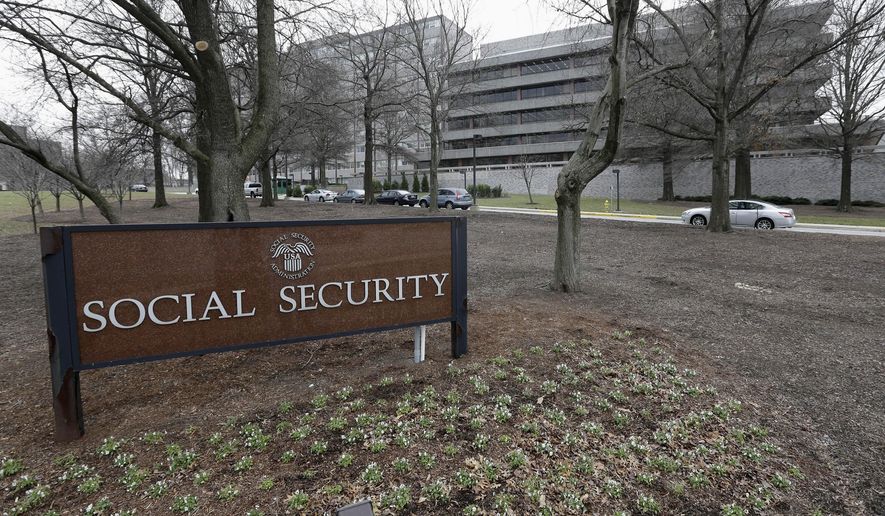The government paid out $124.7 billion in potentially bogus payments last year, the government’s chief watchdog said Monday, blaming a controversial tax credit for the poor as well as increased bad payments in Medicare and Medicaid.
One major problem is tracking when Americans die — the Social Security Administration admitted last week that its rolls are filled with names of more than 6 million folks who are listed as 112 years of age or older.
The Government Accountability Office said Social Security has trouble maintaining the Death Master File, and other agencies have difficulties in getting the information to update their own files and halt payments to those no longer alive to collect benefits.
At the same time, being improperly listed on the Death Master File can cause nightmares, said Judy C. Rivers, a woman who has twice been erroneously listed, leaving her denied for jobs, rejected for apartments and forced to live in her car.
At one point she spent an hour haggling with a bank that was refusing to open an account for her but wouldn’t tell her why. Eventually the manager told Ms. Rivers her Social Security number had been listed by the federal agency as deactivated “due to death.”
“The Death Master File has been like a propagating hydra underlying all my problems,” she told the Senate Homeland Security and Governmental Affairs Committee.
SEE ALSO: Rand Paul emerges as the harshest GOP critic of Clinton emails
It took her four years to clear up enough of the problems that she was able to be approved for a credit card again.
Social Security’s inspector general said a 2008 investigation found more than 20,000 people who were wrongly listed in the death file.
The agency says its hands are tied and it must release some information about those in its death file in response to open-records requests, leaving those erroneously listed open to even more fraud if an unscrupulous actor gets their number and realizes they are still alive.
Social Security insists it hasn’t found an instance where someone’s identity was compromised solely because of being wrongly listed.
Sean Brune, senior adviser to the deputy Social Security commissioner, said less than half a percent of the 2.8 million new death reports they get each year are inaccurate.
The agency gets its information from banks, post offices, and federal and state agencies that pay out benefits, such as the Veterans Affairs Department or Medicare.
SEE ALSO: VA refusing to comply with Congress on transparency, reforms, lawmakers say
Social Security paid out a little more than $8 billion in improper payments last year, according to GAO investigators. The supplemental security income program had a 9.2 percent error rate, while the retirement benefits program had a much smaller error rate of four-tenths of a percent.
The biggest problems, however, came at Medicare, whose basic fee-for-service program paid out $45.8 billion in improper payments, or nearly 13 percent of its outlays, and the Earned Income Tax Credit, which botched 27.2 percent of its payments, for a total of $17.7 billion, the GAO said.
Medicaid, Medicare Advantage and unemployment insurance rounded out the top five worst programs in terms of dollars spent on potentially bogus payments.
“With outlays for major programs, such as Medicare and Medicaid, expected to increase over the next few years, it is critical that actions are taken to reduce improper payments,” the GAO told the Senate committee.
The nearly $125 billion in improper payments amounts to a rate of slightly more than 4 percent. That’s down from 5.42 percent in 2009, when President Obama took office, but is up substantially from last year’s 3.53 percent, the White House budget office acknowledged.
“While progress has been made over the years, the time has come for a more aggressive strategy to reduce the levels of improper payments we currently are seeing,” Controller David Mader said.
• Stephen Dinan can be reached at sdinan@washingtontimes.com.




Please read our comment policy before commenting.